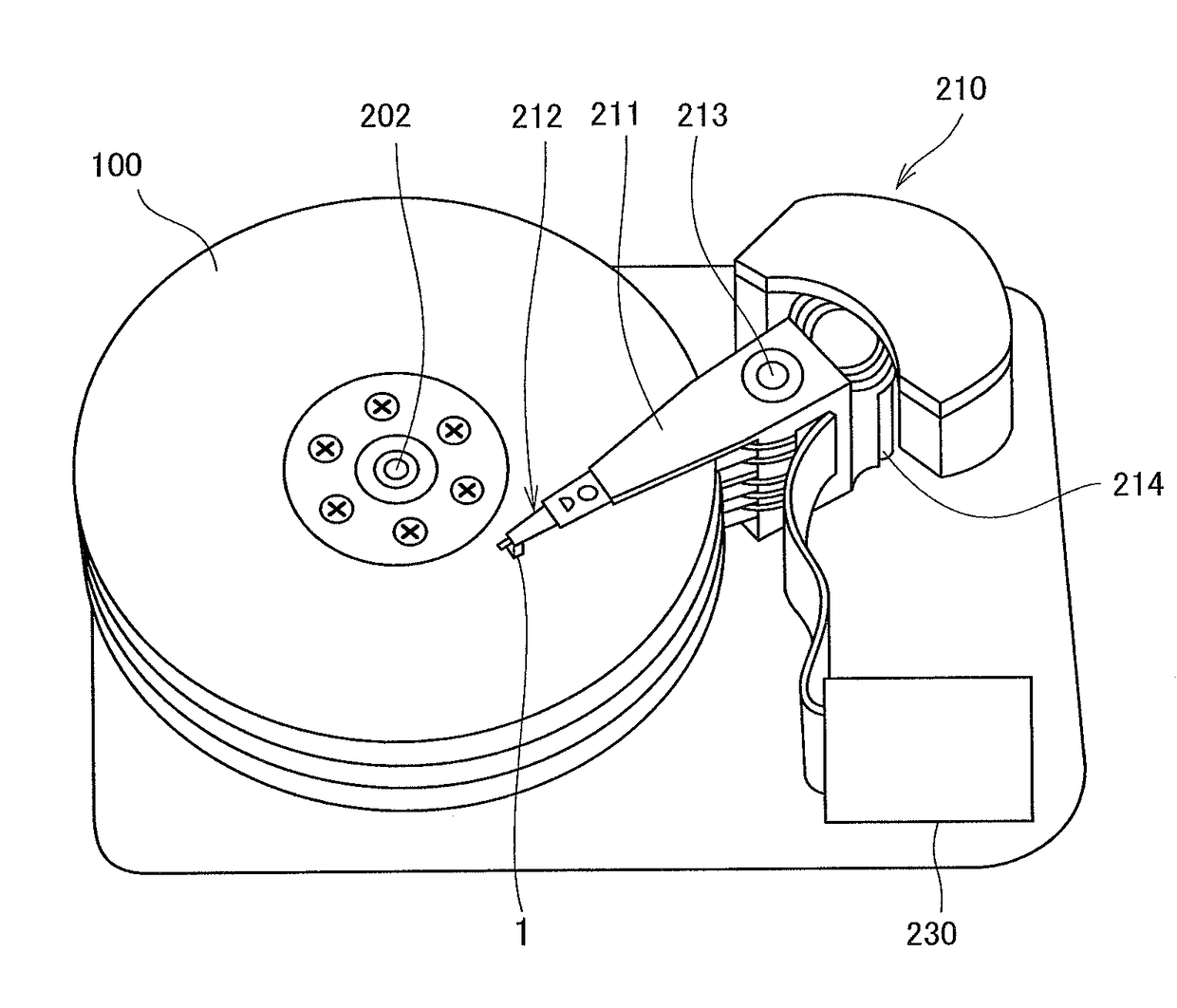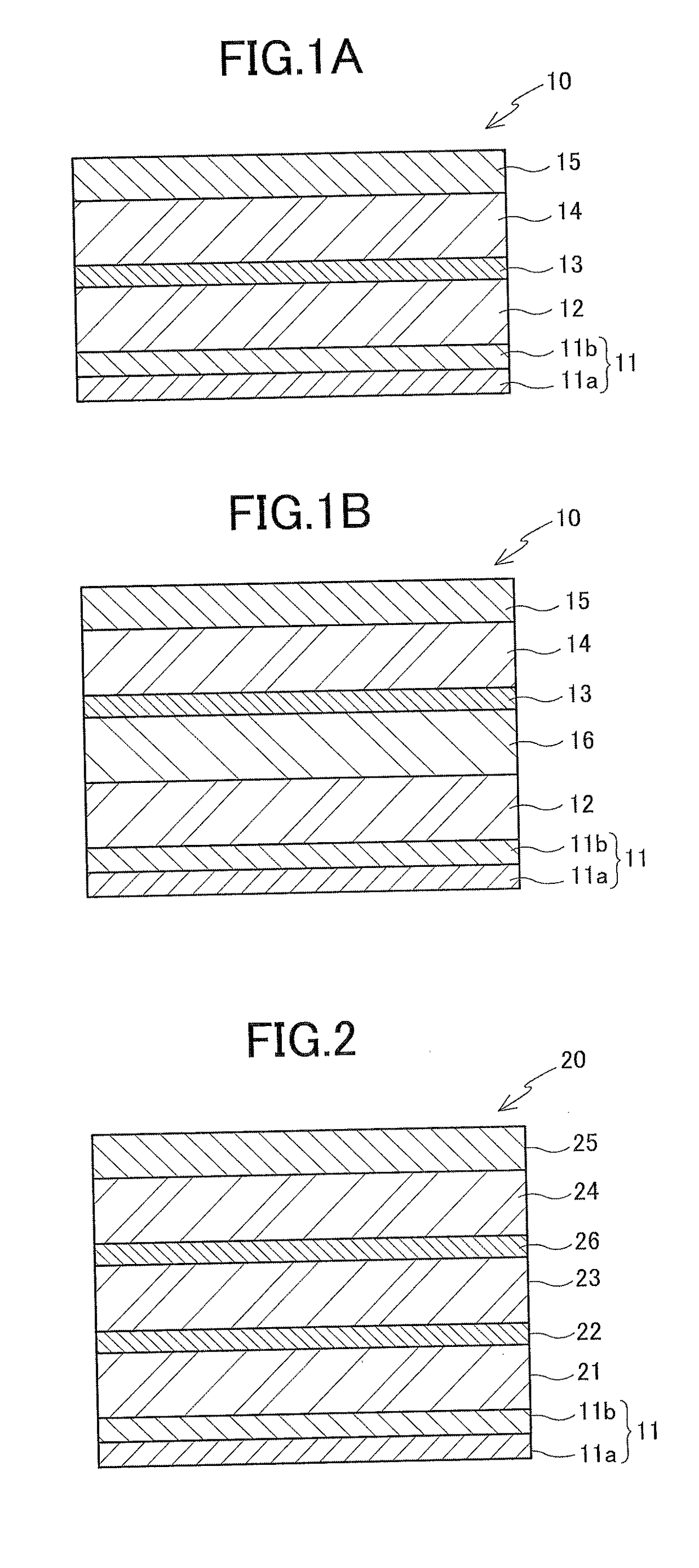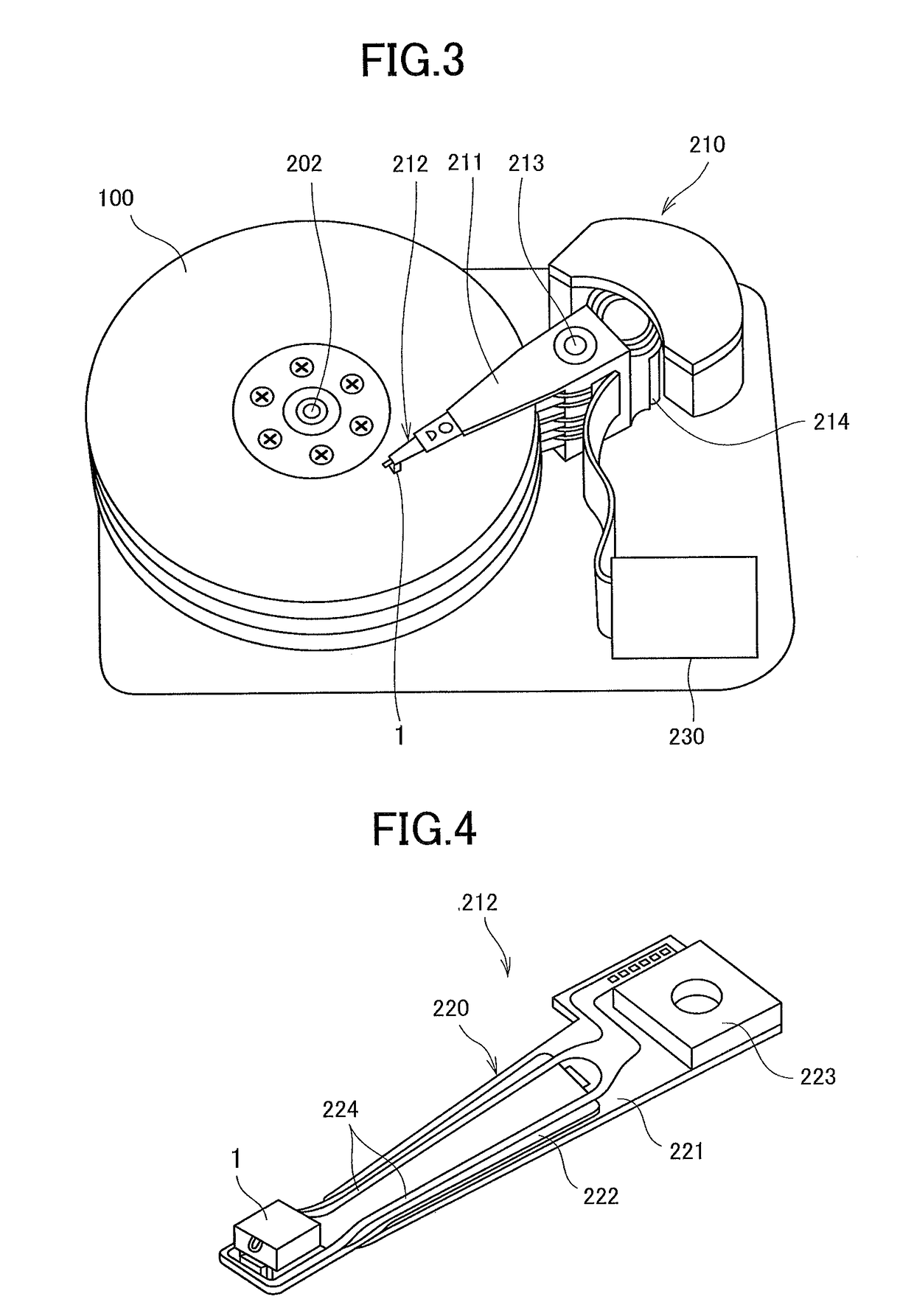Multilayer element including base multilayer body, magnetic sensor and microwave assisted magnetic head
- Summary
- Abstract
- Description
- Claims
- Application Information
AI Technical Summary
Benefits of technology
Problems solved by technology
Method used
Image
Examples
example 1
[0104]After a TaFe alloy layer (Ta: Fe=27 (at %): 73 (at %)) with a film thickness of 10 Å was formed as a seed layer on a silicon wafer using a sputtering method, an IrCr alloy layer with a film thickness of 20 Å was formed as a buffer layer using the sputtering method; thereby, a base multilayer body (total film thickness: 30 Å) was produced. [CoFe / Ni]20 was formed as a spin injection layer (SIL) on the buffer layer of the base multilayer body using the sputtering method, and a multilayer Le1 was produced.
example 2
[0105]The base multilayer body was produced in a manner similar to Example 1 except that the TaCo alloy layer (Ta: Co=27 (at %): 73 (at %)) with a film thickness of 10 Å was formed as a seed layer, [CoFe / Ni]20 was formed on the buffer layer of the base multilayer body as the SIL using the sputtering method, and a multilayer Le2 was produced.
example 3
[0106]The base multilayer body was produced in a manner similar to Example 1 except that the TaNi alloy layer (Ta: Ni=27 (at %): 73 (at %)) was formed, [CoFe / Ni]20 was formed on the buffer layer of the base multilayer body as the SIL using the sputtering method, and a multilayer Le3 was produced.
PUM
 Login to View More
Login to View More Abstract
Description
Claims
Application Information
 Login to View More
Login to View More - R&D
- Intellectual Property
- Life Sciences
- Materials
- Tech Scout
- Unparalleled Data Quality
- Higher Quality Content
- 60% Fewer Hallucinations
Browse by: Latest US Patents, China's latest patents, Technical Efficacy Thesaurus, Application Domain, Technology Topic, Popular Technical Reports.
© 2025 PatSnap. All rights reserved.Legal|Privacy policy|Modern Slavery Act Transparency Statement|Sitemap|About US| Contact US: help@patsnap.com



